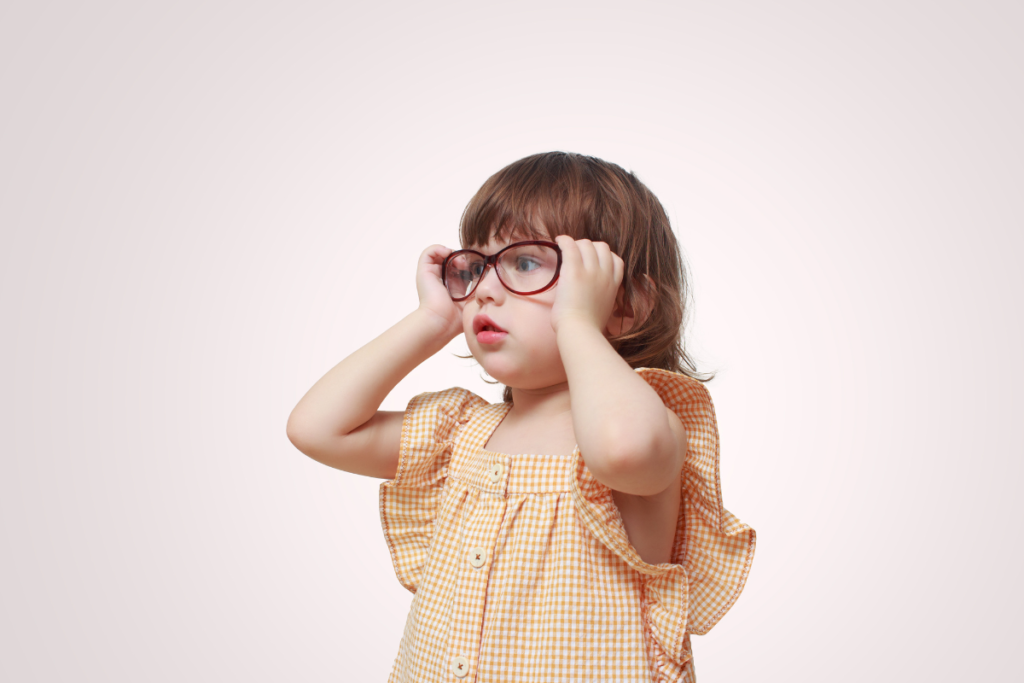Myopia (nearsightedness) is a common refractive defect that impairs children’s vision. To guarantee the proper visual development of their child, parents need to be aware of the causes and available treatments. This article features the story of 8-year-old Riya, who struggled with myopia.
Patient Story: Riya loved reading and drawing but often squinted while watching television or looking at the board in school. After observing that she was holding books near her face, her parents decided to have her examined by an eye specialist.
Symptoms:
Symptoms of myopia often include:
● Difficulty seeing distant objects clearly: trouble reading signs or seeing the board in class.
● Eye strain or discomfort: Children may rub their eyes or complain of headaches.
● Squinting: Attempting to see better by narrowing the eyelids.
Diagnosis:
Diagnosing myopia typically involves:
- A complete eye examination: this covers visual acuity tests, etc., to conclude the severity of nearsightedness.
- Retinal Examination: to look for any vision-threatening issues.
Treatment Options:
Treatment for myopia can include:
- Glasses: Prescription glasses are the most common method to correct myopia and have always been a popular method of vision correction.
- Contact lenses: Older children and teenagers wish to prefer these for cosmetic reasons.
- Orthokeratology: Special contact lenses that are worn overnight by the patient to reshape the cornea temporarily, allowing clearer vision duringthe day.
Tips for Parents:
Parents can help by:
● Encouraging Regular Eye Exams: Ensure your child has detailed eye exams annually or as the eye specialist recommends.
● Promoting Good Visual Habits: Reduce screen time and encourage outdoor play to reduce eye strain.
● Being Aware of Symptoms: Look out for any changes in vision or new symptoms and consult a specialist as needed.
FAQs
What causes myopia?
Genetic factors, prolonged near-work, and insufficient outdoor activities often influence myopia.
Can myopia be prevented?
While it may not be entirely preventable, encouraging outdoor activities and avoiding screen time can help manage its progression.
Is myopia reversible?
Myopia is a lifelong condition but can be managed effectively with corrective lenses.
Disclaimer:
This information is not intended to replace professional medical advice. Always consult a healthcare provider for diagnosis and treatment options.
How HealthPil Can Help:
HealthPil connects you with pediatric ophthalmologists who can provide expert guidance on managing myopia and ensuring your child’s visual health.

